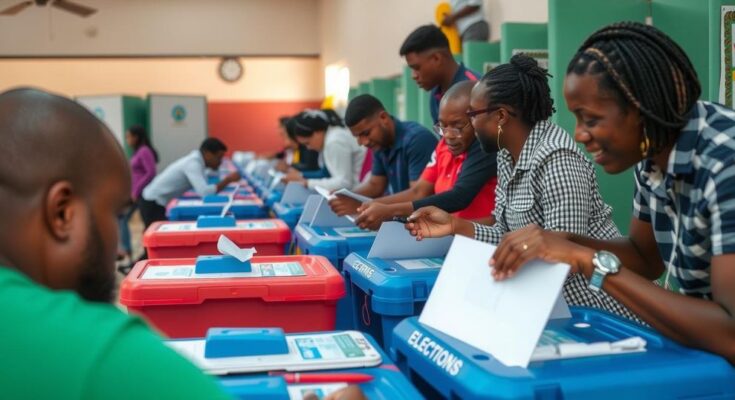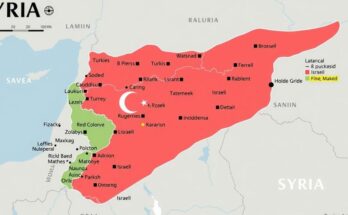Voters in Comoros are electing members for a 33-seat parliament amidst allegations of electoral irregularities from last year’s presidential election. Approximately 338,000 registered voters are participating, with nearly 100 candidates in the race. President Azali Assoumani faces accusations of authoritarianism and grooming his son for succession as opposition parties strive to challenge the current regime. Results are anticipated by Friday.
Voters in the Comoros archipelago are exercising their democratic rights today, casting ballots for a new parliament comprising 33 seats. This election occurs in a climate of contention, following the controversial re-election of President Azali Assoumani last year, which the opposition claims was characterized by significant irregularities—claims that officials from Assoumani’s ruling party have firmly denied. With approximately 338,000 eligible voters, polling stations opened early this Sunday, marking a pivotal moment in the nation’s electoral history. Furthermore, nearly 100 candidates approved by the Supreme Court will compete for these parliamentary seats.
Assoumani, who has held power since a coup in 1999, has faced accusations from his opponents of exercising authoritarian control. There is apprehension regarding his intentions to effectively groom his eldest son, Nour El-Fath, for succession upon the conclusion of his presidency in 2029. In 2024, Assoumani facilitated a substantial increase in his son’s governmental influence, appointing him to oversee all state affairs. While some opposition parties, notably Juwa under former President Ahmed Abdallah Sambi—currently serving a life sentence—have advocated for a boycott of the elections, other groups have chosen to engage in the electoral process to challenge the regime.
Hamidou Karihila of the opposition Hope of the Comoros party articulated the sentiment of participating in this election: “The Azali regime is weakened … by participating in these elections, we are contributing to further exposing the flaws in its system and accelerating its inevitable fall.” The outcomes of this election are eagerly awaited and are expected to be announced by the end of the week, specifically by Friday.
The Comoros, an island nation situated in the Indian Ocean, has a complicated political history, characterized by frequent regime changes and civil unrest. Since taking control through a coup in 1999, President Azali Assoumani has faced considerable pushback from various opposition factions. The nation has a relatively young democracy, and while elections are held, they are often accompanied by allegations of malpractice. Accusations of authoritarianism and concerns regarding the potential political dynasty form the backdrop to the current elections, which are critical in shaping the future governance of the islands. In the past two decades, Comoros has witnessed only limited progress towards political stability, and the political landscape remains highly polarized. With almost a hundred candidates vying for parliamentary seats, the dynamics of these elections are crucial for potential changes in governance, particularly amid the opposition calls for reform and accountability.
In summary, the parliamentary elections in Comoros signify a critical juncture for the nation’s political evolution, reflecting ongoing tensions between the ruling party and a well-established opposition. As voters engage in this process, the international community closely observes the developments, especially concerning the allegations of electoral malpractices and the significant influence of President Assoumani and his family within the political sphere. The outcomes are poised to impact the future trajectory of governance in Comoros and may either contribute to increased democratic accountability or further entrench the current regime.
Original Source: www.moreechampion.com.au




